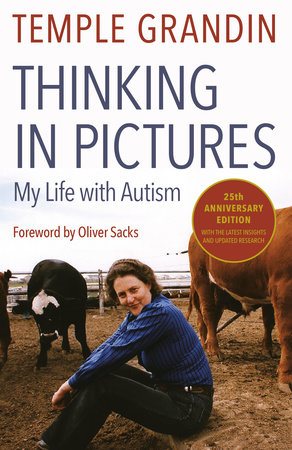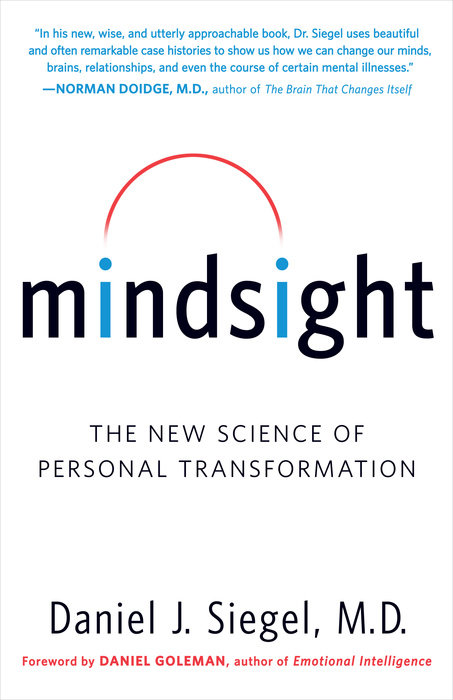Maggie Coughlin shares some lessons she’s learned in understanding her own autism and how to work with her neurodiversity and that of the students she teaches.
YOU MIGHT ALSO LIKE
CLEAR ALL
BY TOPIC
BY TEACHER
BY TYPE
FILTER

TOPIC
- Well-Being (45)
- Identity (43)
- Self-Discovery (38)
- Belonging (34)
- Child’s Autism (33)
- Relationship Challenges (33)
- Emotional and Mental Health (32)
- Parenting (32)
- Child’s ADD/ADHD (31)
- Growth Mindset (29)
- Romantic Relationships (29)
- Communication Skills (27)
- Anxiety (23)
- Neuroscience (23)
- Children’s Well-Being (22)
- Synesthesia (20)
- Transitions (20)
- Imagination and Creativity (18)
- Connection (17)
- Friendship (17)
- Self-Development (17)
- BIPOC Well-Being (16)
- Relationship with Time (16)
- Highly Sensitive People (15)
- LGBTQIA Well-Being (15)
- Personality Typing (15)
- Self-Pressure (15)
- Family Dynamics (14)
- Resilience (14)
- Access to Education (13)
- Cognitive Psychology (13)
- Failure (13)
- Self-Esteem (13)
- Burnout (12)
- Depression (12)
- Habits of Mind (12)
- Self-Reliance (12)
- Immigration and Assimilation (11)
- Marriage (11)
- Self-Actualization (11)
- Self-Care (11)
- Black Well-Being (10)
- Collaboration (10)
- Disabled Well-Being (10)
- Memoir (10)
- Motivation (10)
- Racial Identity (10)
- Social Anxiety (10)
- Social Presence (10)
- Athlete Well-Being (9)
- Focus (9)
- Memory (9)
- Productivity (9)
- Self-Acceptance (9)
- Work Challenges (9)
- Academic Struggles (8)
- Authenticity (8)
- Confidence (8)
- Enneagram (8)
- Imposter Syndrome (8)
- Latinx Well-Being (8)
- Offering Support to Others (8)
- Personal Development (8)
- Problem Solving (8)
- Stress Management (8)
- Transgender Well-Being (8)
- Women’s Well-Being (8)
- Awareness (7)
- Decision Making (7)
- Gender Identity (7)
- Grit (7)
- Happiness (7)
- Human Potential (7)
- Identity Shifts (7)
- Life Challenges (7)
- Meditation (7)
- Neuroplasticity (7)
- Neuropsychology (7)
- Psychology (7)
- Sleep (7)
- Brain Health (6)
- Child’s Emotional Growth (6)
- Community Healing (6)
- Creative Well-Being (6)
- Cross-Cultural Dynamics (6)
- Fear (6)
- Mind-Body Connection (6)
- Negative Self-Talk (6)
- Peak Performance (6)
- Perception (6)
- Philosophical Approaches (6)
- Positive Psychology (6)
- Search for Purpose (6)
- Self-Limiting Beliefs (6)
- Self-Reflection Practices (6)
- Shame (6)
- Social Justice (6)
- Trauma Healing (6)
- Activism/Service (5)
- Asking for Help (5)
- Child’s Challenging Behavior (5)
- Emotional Intelligence (EQ) (5)
- Finding Meaning (5)
- Habit Formation (5)
- Intimacy (5)
- Leadership (5)
- Living as an Empath (5)
- Mindfulness (5)
- Physical Health (5)
- Relationship with Money (5)
- Self-Realization (5)
- Self-Worth (5)
- Sexual Assault or Abuse (5)
- Speaking Your Truth (5)
- Transformation (5)
- Work Relationships (5)
- Work-Life Balance (5)
- Acceptance (4)
- Addiction (4)
- Aging (4)
- Caregiver Well-Being (4)
- Challenges with Teens (4)
- Consciousness (4)
- Criticism and Rejection (4)
- Empathy (4)
- Exercise (4)
- Loneliness (4)
- OCD (4)
- Self-Healing (4)
- Stress (4)
- AAPI Well-Being (3)
- Animal Connection (3)
- Buddhism (3)
- Cognition (3)
- Courage (3)
- Diet and Nutrition (3)
- Digital Life (3)
- Empowerment (3)
- Entrepreneurship (3)
- Female Empowerment (3)
- Fiction (3)
- Global Challenges (3)
- Goal Setting (3)
- Gratitude (3)
- Healing Approaches (3)
- Healthy Eating (3)
- Honoring Emotion (3)
- Inner Peace (3)
- Integrative Medicine (3)
- Intention (3)
- Joy (3)
- LGBTQIA Sexuality (3)
- Managing Energy (3)
- Mindfulness Practices (3)
- Motherhood (3)
- Nonbinary Well-Being (3)
- Performance Pressure (3)
- Race and Gender (3)
- Racism (3)
- Retirement (3)
- Self-Control (3)
- Self-Discipline (3)
- Self-Expression (3)
- Self-Mastery (3)
- Social Psychology (3)
- Social Responsibility (3)
- Time Management (3)
- Adaptability (2)
- Affirmations (2)
- Anger (2)
- Animal Communication (2)
- Body Image (2)
- Cancer (2)
- Chronic Health Conditions (2)
- Compassion (2)
- Connection with Nature (2)
- Diamond Approach (2)
- Disconnection (2)
- Discrimination (2)
- Family Acceptance (2)
- Fellowship and Community (2)
- Female Friendship (2)
- Guided Meditation (2)
- Homophobia (2)
- Inner Life (2)
- Inner Strengths (2)
- Interdependence (2)
- Letting Go (2)
- Manifestation (2)
- Men’s Well-Being (2)
- Mental Health Challenges (2)
- Myers-Briggs Type Indicator (2)
- Oneness (2)
- Optimism (2)
- Passion (2)
- Positive Self-Talk (2)
- Post-Traumatic Growth (2)
- Presence (2)
- Psychology and Spirituality (2)
- Racial Discrimination (2)
- Racial Justice (2)
- Rest (2)
- Science and Spirituality (2)
- Self-Compassion (2)
- Self-Love (2)
- Setting Limits and Boundaries (2)
- Sex (2)
- Sexuality (2)
- Spiritual Awakening (2)
- Spiritual Development (2)
- Tibetan Buddhism (2)
- Trauma (2)
- Veteran Well-Being (2)
- Visualization (2)
- Work Ethic (2)
- Youth Activism (2)
- Anger Management (1)
- Animal Welfare (1)
- Attachment Theory (1)
- Autoimmune Disease (1)
- Awe (1)
- Biofeedback (1)
- Body Positivity (1)
- Breathwork (1)
- Building Culture (1)
- Child’s Anxiety (1)
- Child’s Trauma (1)
- Chronic Fatigue (1)
- Chronic Pain (1)
- Climate Change (1)
- Codependency (1)
- Cognitive Behavioral Therapy (1)
- Coming Out (1)
- Compassion Fatigue (1)
- Compassion Meditation (1)
- Competition (1)
- Curiosity (1)
- Death and Dying (1)
- Dysfunctional Childhood (1)
- Eating Disorders (1)
- Ecospirituality (1)
- Ego (1)
- Ego Dissolution (1)
- Embodiment (1)
- Endurance (1)
- Facing Own Death (1)
- Fatherhood (1)
- Fatigue (1)
- Following Bliss (1)
- Forest Bathing (1)
- Forgiveness (1)
- Freedom (1)
- Gaming Addiction (1)
- Gender Challenges (1)
- Gender Discrimination (1)
- Generational Healing (1)
- Generosity (1)
- Genetics (1)
- Handling a Child’s Illness (1)
- Holism (1)
- Hope (1)
- Intergenerational Trauma (1)
- Intuition (1)
- Journaling (1)
- Judaism (1)
- Jungian Analysis (1)
- Kindness (1)
- LGBTQIA Parents (1)
- LGBTQIA Relationships (1)
- Love (1)
- Lovingkindness Meditation (1)
- Midlife Crisis (1)
- Mindfulness Meditation (1)
- Misophonia (1)
- Moral Philosophy (1)
- Near-Death Experience (1)
- New Relationships (1)
- Panic Attacks (1)
- Patience (1)
- Performance Anxiety (1)
- Pleasing Parents (1)
- Positive Thinking (1)
- Pregnancy and Childbirth (1)
- PTSD (1)
- Raising Nonbinary Children (1)
- Reproductive Health (1)
- Self-Harm (1)
- Self-Reckoning (1)
- Shared-Death Experience (1)
- Sleep Disorders (1)
- Social Media Addiction (1)
- Somatic Practices (1)
- Spiritual Healing (1)
- Spiritual Life (1)
- Suicide (1)
- T’ai Chi (1)
- The Feldenkrais Method (1)
- Trauma-Informed Therapy (1)
- Trust (1)
- Unconscious Bias (1)
- Vulnerability (1)
- Wake-Up Calls (1)
- Weight Concerns (1)
- Willpower (1)
FILTER

TEACHER
- Daniel Amen (4)
- Richard Davidson (4)
- Brendon Burchard (3)
- Gabor Maté (3)
- John Perry (3)
- Alan Watts (2)
- Andrew Weil (2)
- Geneen Roth (2)
- Yongey Mingyur Rinpoche (2)
- A. H. Almaas (1)
- Angela Duckworth (1)
- Anne Lamott (1)
- Arianna Huffington (1)
- Cal Newport (1)
- Carol Dweck (1)
- Daniel Goleman (1)
- Daniel J. Siegel (1)
- David J. Wolpe (1)
- Dilip Jeste (1)
- Eckhart Tolle (1)
- Elaine Aron (1)
- Ellen Langer (1)
- Gangaji (1)
- Gretchen Rubin (1)
- Jack Kornfield (1)
- James Baraz (1)
- Jay Shetty (1)
- Joan Borysenko (1)
- John Bradshaw (1)
- Jonathan Haidt (1)
- Kathy Freston (1)
- Kelly McGonigal (1)
- Linda Graham (1)
- Louise Hay (1)
- Maria Sirois (1)
- Martha Beck (1)
- Martin Luther King Jr. (1)
- Martin Seligman (1)
- Michael Phelps (1)
- Moshé Feldenkrais (1)
- Oliver Sacks (1)
- Ram Dass (1)
- Riane Eisler (1)
- Rich Roll (1)
- Rick Hanson (1)
- Sarah Blondin (1)
- Simone Biles (1)
- Steven Johnson (1)










